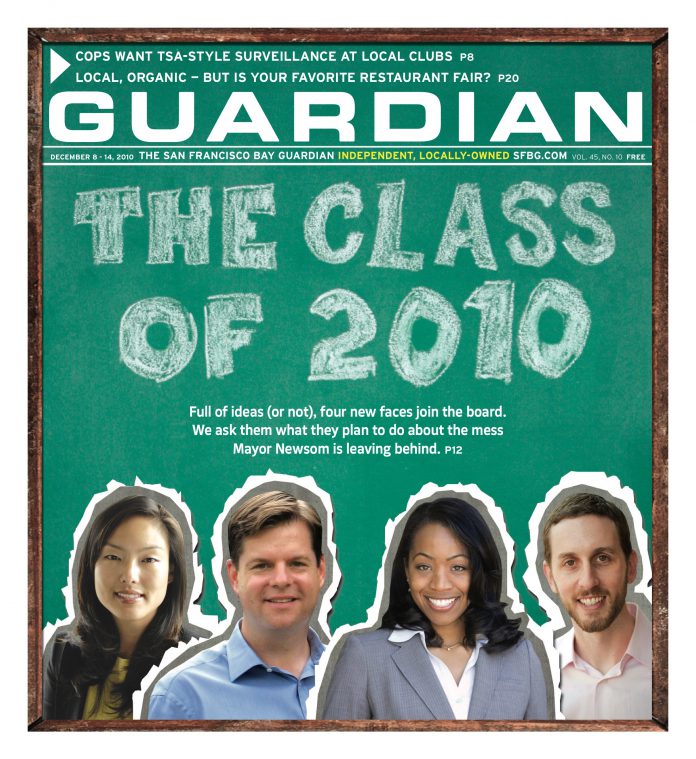In about a month, the first class of district-elected supervisors since the 1970s will be gone, termed out, done with the transformative politics they brought to San Francisco. It’s a milestone worth marking: in 2000, when the city returned to district elections, everything changed. Machine-driven politics, controlled by money and mayoral power, vanished almost overnight. Constituencies that were virtually shut out of the corridors of power — tenants, labor, environmentalists, economic progressives, public power activists, the list goes on — suddenly had a seat at the table. Neighborhood issues started to matter. And downtown power brokers were no longer the only game in town.
But term limits mean that none of the members of the class of 2000 can remain in office beyond Jan. 8, 2011; and along with the new members elected two years ago, the class of 2010 will feature four new faces. It’s a diverse group. Two (Malia Cohen and Mark Farrell) have never before run for, much less held, elective office. One (Jane Kim) is Asian, one (Cohen) is African American, one (Scott Wiener) is gay. Farrell, who will replace Michela Alioto-Pier in District 2, is the only straight white guy. (Carmen Chu was reelected from District 4).
Overall, it’s safe to say, the ideological balance of the board hasn’t changed much — but the political approaches will be very different. In 2000, the election was all about then-Mayor Willie Brown, about fighting (or appeasing) the Brown Machine. This group of candidates didn’t run against anything in particular — and with the balkanized nature of local politics, they all have divergent bases of support.
So we sat down with the Class of 2010 and asked them to tell us what they plan to do with the next four years. Two trends emerged: all of the new supervisors want to be seen as independent of any political operation. And most have no clear agenda whatsoever for addressing the biggest problem facing the city — a looming budget deficit that will define almost everything they do in their first year.
At a moment of major fiscal crisis and political change, these four people will on center stage — and what they do could determine both the direction of the city and the hopes of the progressive movement. Click below for our exclusive interviews and profiles:
‘

